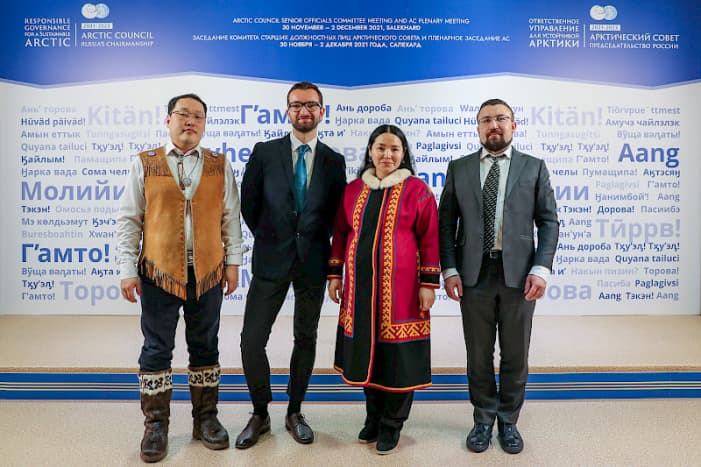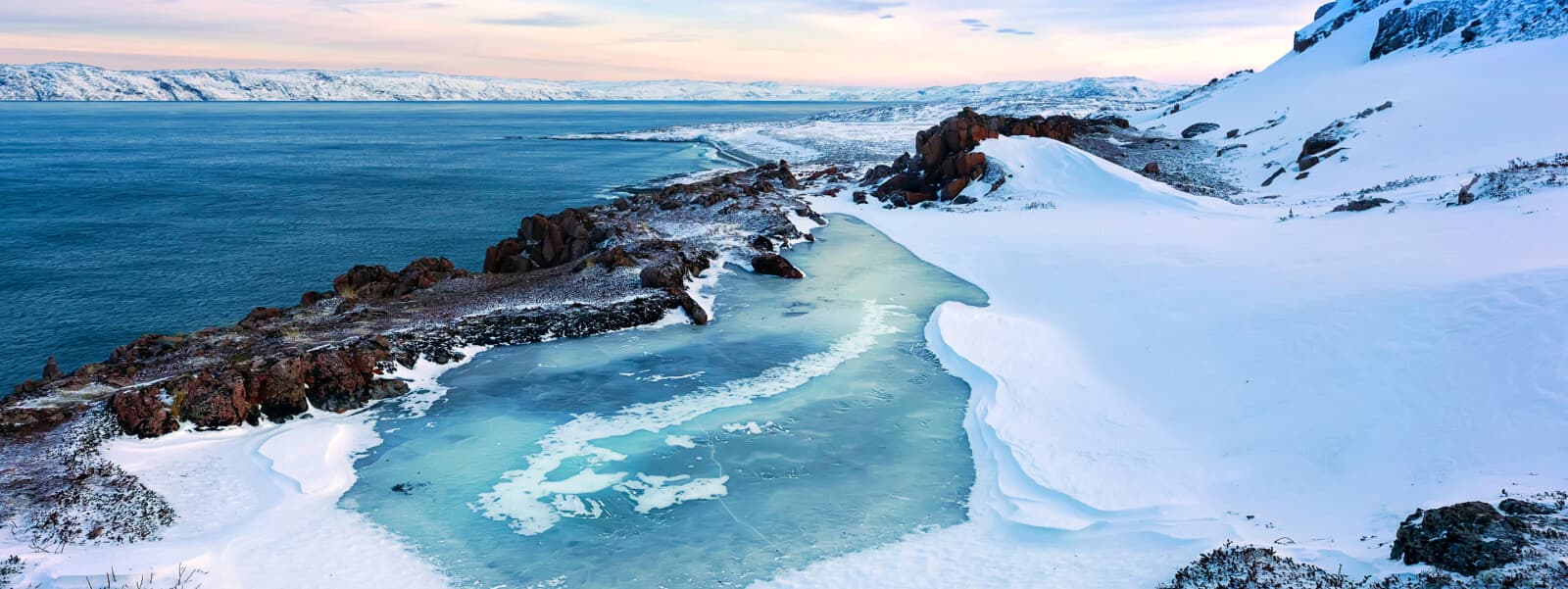THE COMPREHENSIVE PROGRAMME OF RUSSIA’S CHAIRMANSHIP CALLS FOR THE PROMOTION OF MULTILATERAL COOPERATION IN THE FOLLOWING PRIORITY AREAS:
1. People of the Arctic, including Indigenous Peoples.
The sustainable development of the Arctic is largely determined by the quality of human capital. During Russia’s Chairmanship, priority attention will be devoted to maintaining the sustainability and vitality of the peoples of the North, promoting measures for their adaption to climate change, improving the wellbeing, health, education, and quality of people’s lives, and ensuring sustainable socioeconomic development throughout the region.
We believe it is important to make use of the Arctic’s increasingly positive potential to ensure prosperity and progress for the entire population of the North and to promote scientific and cultural exchanges, tourism, and contacts between people and regions. Particular attention will be paid to preserving the linguistic and cultural heritage of the Indigenous Peoples of the Arctic and promoting cross-border youth exchanges.
2. Environmental protection, including climate change.
Considering the rapid climate change we are seeing in the Arctic, including the degradation of permafrost and the emission of gas hydrates, we believe the primary objectives for mitigating the negative effects of climate change are to further adapt life-sustaining activities and ensure resilience to its consequences, preserve and restore the environment, use natural resources in a sustainable manner, and support the health of Arctic ecosystems, including the marine environment and the preservation of biodiversity, in particular migratory birds.
In terms of the region’s further development, we consider it essential to not only take into account the Arctic’s vulnerability to climate change, but also its promising contribution — thanks to its natural, energy, and transport resources — to facilitating the transition to a low-emission economy and, consequently, to meeting the goals and objectives of the Paris Climate Agreement. An equally important task is to promote the introduction of advanced innovative technologies in the region in the transport sector, industry, infrastructure, and energy, including the expanded use of renewable energy sources, to improve the living standards of the Arctic people.
3. Socioeconomic development.
A crucial component for the wellbeing and prosperity of the Arctic is its sustainable economic development. Russia’s Chairmanship will focus on further promoting economic cooperation in the region, developing reliable energy infrastructure and sustainable transport routes, including maritime navigation, telecommunications systems, and the food sector, improving conditions for investment, and promoting innovation, entrepreneurship, and business financing.
4. Strengthening the Arctic Council.
Russia’s Chairmanship will continue to help consolidate the Arctic Council as a key format for international Arctic cooperation, improve its work, enhance the efficiency of the Working and Expert Groups and the Secretariat, develop mechanisms to fund the Council’s activities, including its projects and programmes, implement decisions and recommendations, and develop dialogue and contacts with Observers in an effort to ensure their meaningful and balanced involvement in the Council’s work. Russia intends to promote the further intensification of collaboration between the Arctic Council and the Arctic Economic Council, the Arctic Coast Guard Forum, the University of the Arctic, and other specialized structures. The Chairmanship’s priorities also include promoting international scientific cooperation, in particular, studying the issue of a scientific expedition in the Arctic Ocean under the auspices of the Arctic Council.


